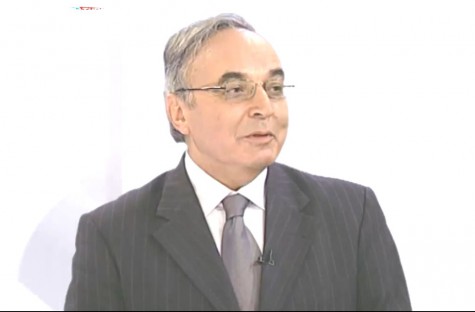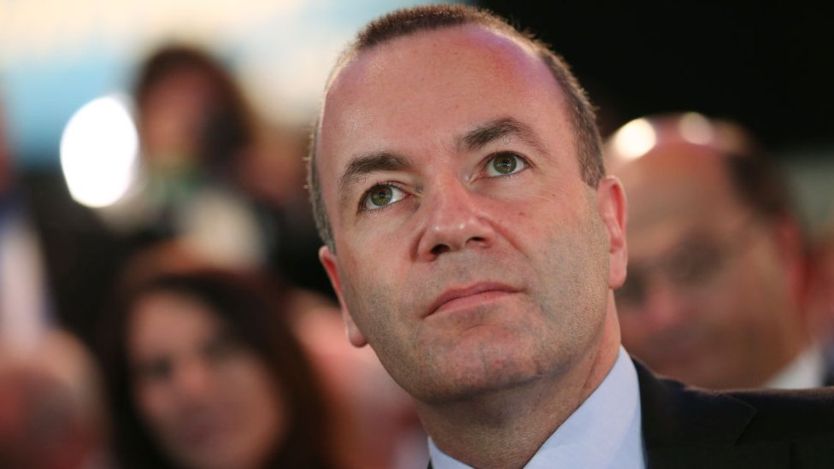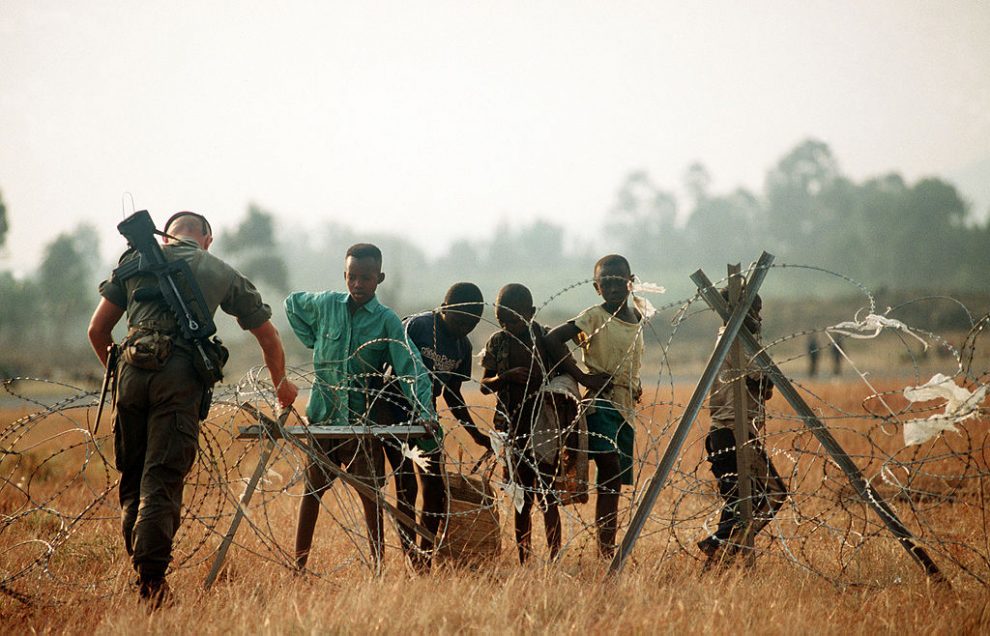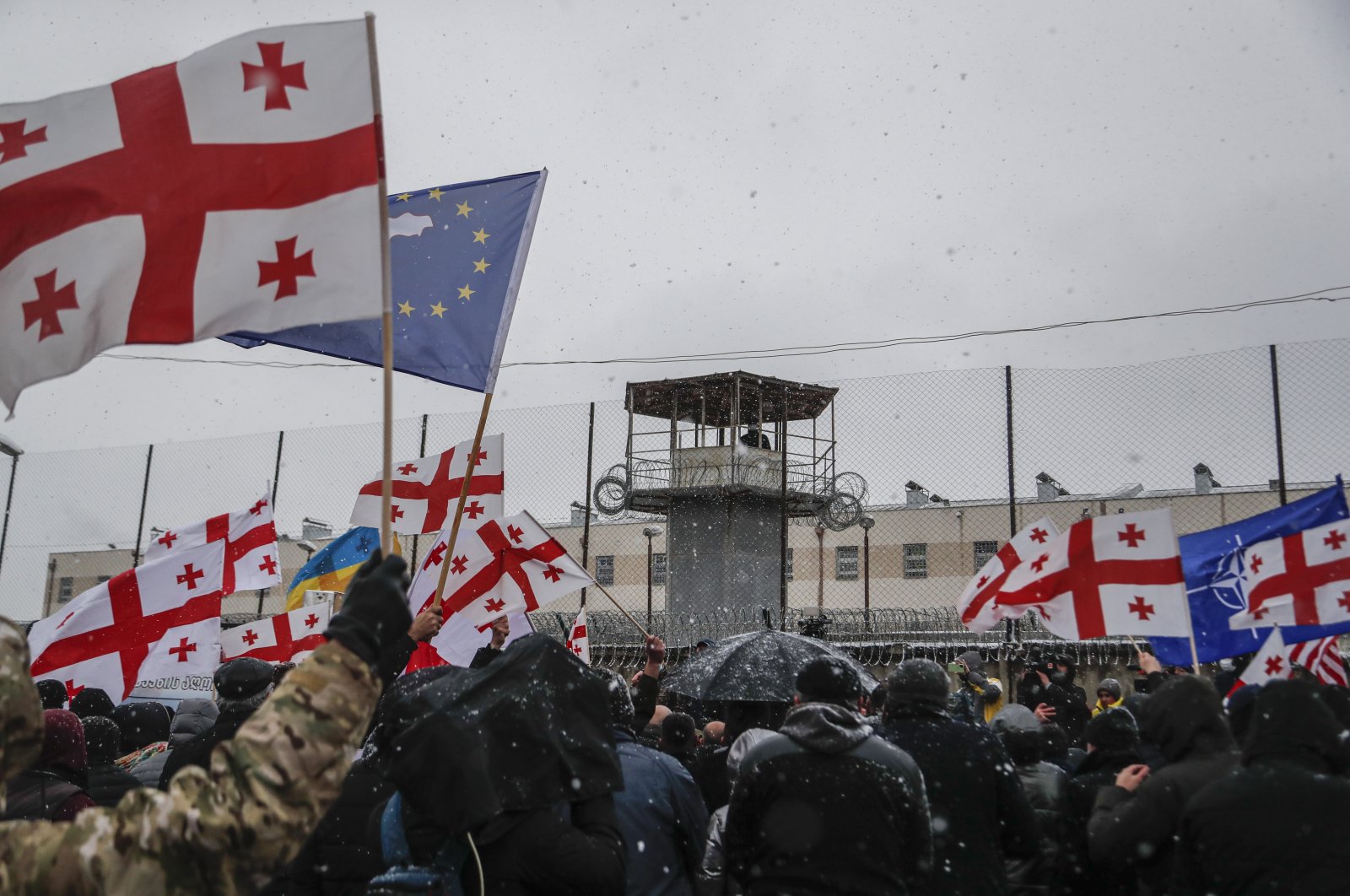
Alev KILIÇ
Director of AVIM
An Armenian military helicopter was downed by Azerbaijani armed forces on 12 November. The incident took place in the occupied Nagorno-Karabakh, near the town of Aghdam, along the cease-fire line. As it can be recalled, Nagorno-Karabakh, part of the territory of Azerbaijan, as well as the surrounding seven administrative units of Azerbaijan have been occupied by Armenian forces by a military operation that started in 1988. The ensuing armed conflict which involved massacres and forced emigration of the Azerbaijani population, in the form of ethnic cleansing, was terminated with a cease-fire agreement concluded in 1992.
The cease-fire of twenty-two years now seems to be cracking with recent escalation of violations. The latest incident of downing of a military helicopter along the cease-fire line is a new and sobering indication that the problem thought to be frozen and thereby held in check is indeed warming up.
There is no doubt that this suits the interests of Armenia to convert the conflict into a frozen question with a view to establishing a “status quo ante” after the cease-fire. The efforts to find a solution to the problem within international law, first and foremost four resolutions adopted by the United Nations Security Council have been turned down by Armenia with impunity, without facing any international reaction or measures. The Minsk Group of OSCE, established in 1992, where Turkey is a founding member, to find a peaceful solution to the problem through diplomatic channels and negotiations, has been carrying out its work by means of the three co-chairs with the mandate bestowed upon them by the Group. Unfortunately, their representations in all these years have proven to be insufficient. Moreover, the priority attached to efforts to freeze the conflict have started to play into the hands of Armenians.
Herewith arises the question, whether the absence of any reaction or measures against Armenia to its continued occupation of the Azerbaijani territory for the past twenty-two years, to the perpetrated massacres and ethnic cleansing have contributed in any manner to establishing peace and stability in the region. The answer to this question is unfortunately negative. Notwithstanding, Armenia was not subject to any measures or punishment during all this period, it has also emerged to become a state vied for winning to their side by Russia, the European Union and the United States.
Not having contributed to peace and stability in the region and contrary to common wisdom of assuming a defensive attitude for its illegal and criminal policies, Armenia has again opted for a selective aggressive policy against two of its neighbors, Azerbaijan and Turkey which have opposed the occupation of Azerbaijan territories.
The trump card of Armenia against Turkey has been its “genocide” allegations. Particularly at the one-hundredth anniversary of the adoption of the “Law of Transport and Resettlement”, Armenia and the Armenian diaspora have focused their efforts with all available means to achieving in the year 2015 a wide spread acknowledgement of their propaganda with the expectation that such propaganda will help them suppress Turkey. It is noteworthy and telling in this connection to see the support accorded to Armenian allegations by the very same states which are on historical record to have encouraged and instigated the uprising of the Armenian population against its centuries old realm in the years preceding and during the First World War. This contemporary support in itself should be of interest to students of history as an example for history not being merely a study of the past, but that it can also be an instrument to ambitions to shape the future. Certainly, it is a phenomenon that needs to be examined separately: why is such support being accorded despite all the documents indicating the contrary, reliable academic works and judicial verdicts?
What can be perceived at present is that Armenia and the Armenian diaspora have raised the bar of their expectations for the year 2015, having concurred in expending all the pulver and ammunition at their service. Therefore, in the foreseeable short term ahead, it does not look promising for Turkey and Armenia to establish any meaningful dialogue or to start a process of negotiation for a mutually agreeable, reasonable reconciliation. In fact, it is clearly seen that the Armenian side equates any and all contact with the Turkish side at this period with an act of treason to the Armenian cause.
On the other hand, sooner or later, it is inevitable that the two sides move on, from a zero sum struggle of adversity where everyone loses, to a good neighborly cooperation where everyone is set to win. After the realization of the uselessness and counter-productivity of these subversive efforts, which are bound to fall short of Armenian expectations in the coming period, Turkey, with the effective and strong testament of academic works and international court verdicts, will be ready and willing to play a leading role to establish regional stability and good neighborly relations in the southern Caucasus.
© 2009-2025 Center for Eurasian Studies (AVİM) All Rights Reserved
No comments yet.
-
ARMENIA’S NUCLEAR POWER PLANT ON THE TURKISH BORDER
Alev KILIÇ 22.10.2012 -
THE BALKANS AND TURKEY
Alev KILIÇ 25.04.2013 -
ENTICEMENT TO TERRORISM
Alev KILIÇ 31.07.2013 -
ANOTHER SAMPLE FOR THE ERRONEOUS ONE-SIDED HISTORICAL MEMORY
Alev KILIÇ 03.12.2012 -
ARMENIA IS MARKETING ITS GEO-STRATEGIC POSITION
Alev KILIÇ 08.11.2012
-
THE U.S. GENOCIDE DRAFT RESOLUTION AND THE PROTOCOLS
Ömer Engin LÜTEM 09.02.2010 -
 THE END JUSTIFY THE MEANS FOR WEBER
THE END JUSTIFY THE MEANS FOR WEBER
Hazel ÇAĞAN ELBİR 18.10.2018 -
G-8, BRICS and G-20 , COMPETITION AMONG GLOBAL ECONOMIC INSTITUTIONS
Alev KILIÇ 19.06.2013 -
 FRANCE IS ACCUSED OF DIVERTING ATTENTION FROM ITS ROLE IN THE GENOCIDE COMMITTED IN RWANDA
FRANCE IS ACCUSED OF DIVERTING ATTENTION FROM ITS ROLE IN THE GENOCIDE COMMITTED IN RWANDA
Ali Murat TAŞKENT 12.12.2016 -
 INTERNAL TURMOIL IN GEORGIA
INTERNAL TURMOIL IN GEORGIA
Ceyda ACİCBE 01.03.2021
-
25.01.2016
THE ARMENIAN QUESTION - BASIC KNOWLEDGE AND DOCUMENTATION -
12.06.2024
THE TRUTH WILL OUT -
27.03.2023
RADİKAL ERMENİ UNSURLARCA GERÇEKLEŞTİRİLEN MEZALİMLER VE VANDALİZM -
17.03.2023
PATRIOTISM PERVERTED -
23.02.2023
MEN ARE LIKE THAT -
03.02.2023
BAKÜ-TİFLİS-CEYHAN BORU HATTININ YAŞANAN TARİHİ -
16.12.2022
INTERNATIONAL SCHOLARS ON THE EVENTS OF 1915 -
07.12.2022
FAKE PHOTOS AND THE ARMENIAN PROPAGANDA -
07.12.2022
ERMENİ PROPAGANDASI VE SAHTE RESİMLER -
01.01.2022
A Letter From Japan - Strategically Mum: The Silence of the Armenians -
01.01.2022
Japonya'dan Bir Mektup - Stratejik Suskunluk: Ermenilerin Sessizliği -
03.06.2020
Anastas Mikoyan: Confessions of an Armenian Bolshevik -
08.04.2020
Sovyet Sonrası Ukrayna’da Devlet, Toplum ve Siyaset - Değişen Dinamikler, Dönüşen Kimlikler -
12.06.2018
Ermeni Sorunuyla İlgili İngiliz Belgeleri (1912-1923) - British Documents on Armenian Question (1912-1923) -
02.12.2016
Turkish-Russian Academics: A Historical Study on the Caucasus -
01.07.2016
Gürcistan'daki Müslüman Topluluklar: Azınlık Hakları, Kimlik, Siyaset -
10.03.2016
Armenian Diaspora: Diaspora, State and the Imagination of the Republic of Armenia -
24.01.2016
ERMENİ SORUNU - TEMEL BİLGİ VE BELGELER (2. BASKI)
-
AVİM Conference Hall 24.01.2023
CONFERENCE TITLED “HUNGARY’S PERSPECTIVES ON THE TURKIC WORLD"









